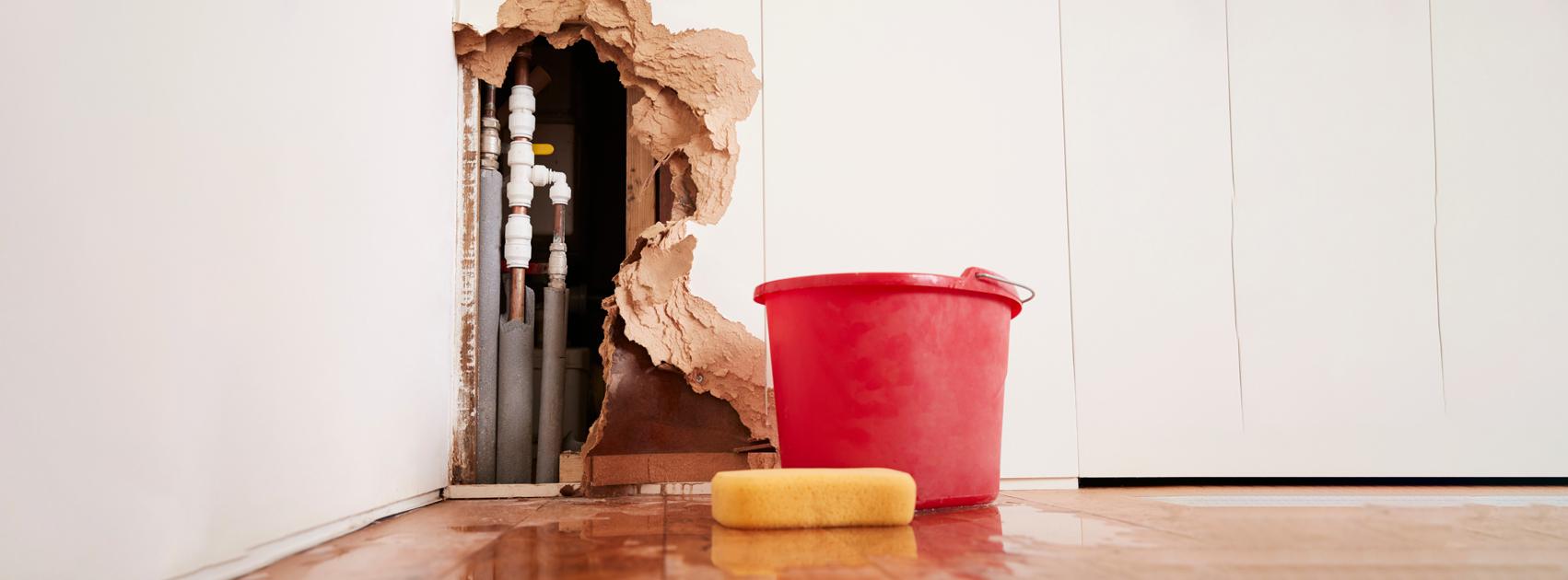
Having a place to call your own is a great experience. However, being a homeowner or a renter comes with a tremendous amount of responsibility. One of those responsibilities is to understand what is covered with your homeowners or renters insurance policy. Water damage and mold remediation, not caused by a flood, may be covered if they are the result of a sudden or accidental event. It will be crucial to review your policy as it will outline, in detail, what is covered and what is not. For additional information or areas of uncertainty it is best to consult your insurance representative or company before an event occurs.
As in the case of all sudden events, triage and address the immediate concern. If water is actively running, stop the water. If safe to do so, prevent any further damage from occurring. In the event of a storm or life threatening emergency, seek shelter and remain safe. Once the immediate concern has been addressed it is time to do a little research. Below is a quick list of tasks to do.
- Take pictures of the damage before any water mitigation, plumbers, or restoration contractors show up.
- Review your policy and any additional riders- Understand what is covered, and for what dollar amount.
- Prior to calling a contractor, call your insurance company/ adjuster.
- Confirm what will be covered and for how much.
- Understand there will be a deductible and what amount it will be.
- Understand who will receive payment and when.
- Find a professional or professionals to mitigate and repair the damage
- Referrals from friends, family or other vendors are great place to start but researching the contractor is still a must. Ensure that any contractor willing to do the work is licensed in Arizona to so.
- Visit the Arizona Registrar of Contractors for tips on hiring a contractor.
- Know that it is your right to ask for more than one quote from more than one contractor.
- Always verify with your insurance company adjuster to make sure the work being done is covered. Do not take the the contractor's word for what is covered.
- Confirm what will be covered and for how much.
- Understand who will receive payment and when.
- Carefully read all contracts in their entirety before any work has been started, this includes any contractor's initial visit or consultation.
- Retain a copy for your records
- Before signing any contract, especially on digital devices (cell phones, tablets, iPads), ensure you understand and receive a copy of the contract.
- Do not sign on any device (phone, iPad, tablet) where the contract is not able to be viewed.
- Keep a log of times, dates, names of techs and equipment (dehumidifiers, air movers, air purifiers, moisture detectors)
- Include how long they are on location
- Note any instructions or directions given, including the name of the tech
- Before work begins or money exchanges hands, call your insurance company and verify what will be covered. Do not take the contractor's word for it.
- Always verify with your insurance company adjuster to make sure the work being done is covered.
- Confirm what will be covered and for how much.
- Understand who will receive payment and when.
- Renters - Check with your landlord before any work is to begin.
- Avoid any high pressure sales, and people who are coming door to door offering their services without being requested.
- Read all details on the contract and only sign with a properly licensed contracting professional.
- Make sure to look for any hidden fees or additional work that was not previously quoted and ask for an explanation in writing.
- Understand when you sign any contract you are agreeing to the terms and conditions of that contract, including matters of payment. If a job exceeds what is covered by your insurance policy, you may be personally responsible for the difference or left with unfinished work.
- Equipment left for extended periods of time but not in use.
- Call the company, as well as your insurance company if this happens. Especially if you were left with instructions for how long it was to be in use.
- Call the company, as well as your insurance company if this happens. Especially if you were left with instructions for how long it was to be in use.